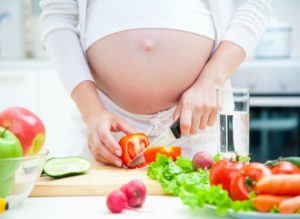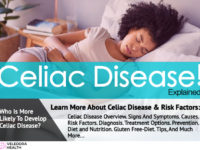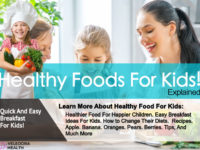
Nutrition Guidelines for a Healthy Pregnancy!
In order to ensure all pregnant women know what is needed to have a healthy pregnancy and healthy baby, in terms of nutrition, there has been some excellent pregnancy nutrition guidelines established.
When you are pregnant, you only need an additional 300 calories per day. You should make sure that these are not empty calories, and that they are in fact nutritious calories. Let’s have a look at some of those guidelines.
1. Protein:
During the time you are pregnant, for your baby to grow healthy; you need to have approx. 60 grams of protein on a daily basis. Protein keeps your uterus, breasts, and placenta healthy, it produces adequate amniotic fluid and it increases the volume of blood.
2. Calcium:
Doctors recommend a calcium intake during pregnancy to range between 1200 to 1500 mg a day. Calcium is vital for your baby’s bones, teeth, heart, and muscles to develop. If you aren’t taking in enough calcium, your baby will draw from your own calcium reserves, which means you are at an increased risk for osteoporosis.
Milk and milk-based products are good sources of calcium. If you are lactose intolerant, there are lactose free milk products.
3. Iron:
Iron is very important in hemoglobin production for both you and your fetes. In the last trimester, your baby will take your body’s iron reserves to ensure it is not anaemic during the first six months of life.
You also lose some blood during the delivery process. These are all reasons why it is so important to increase your iron intake.
While your body only needs 27 mg of iron per day,
- You actually have to take 60 mg to get that 27 mg because not all iron is absorbed.
- If you are anaemic, you should take an iron supplement.
- Vitamin C enriched foods will help you with your iron absorption.
- Foods like oranges, grapefruits, and tomato juice work well.
- Avoid taking your iron and calcium supplements and/or foods at the same time since calcium interferes with iron absorption.
4. Vitamins:
The recommended increase in vitamins is 25 to 50 percent. Your folic acid need doubles to 400 micrograms per day. Eating a variety of fresh fruits and vegetables, whole grains, lean meats, etc will help to ensure you get adequate vitamins.
Your physician will instruct you about any other nutritional needs he/she feels you may need in order to ensure a healthy pregnancy and healthy baby.
What Not to Eat When You are Pregnant?
You are pregnant – the minute you hear those words all kinds of thoughts start running through your mind, and one of the main ones is what to eat and what not to eat when you are pregnant. After all, you want to make sure your baby is healthy and that you remain healthy.
1. It is important that you avoid foods that high in mercury:
Fish are high in protein and omega 3 fatty acids, but mercury is a very real concern, especially for your fetes. Too much mercury has the potential to damage the nervous system of your baby.
The FDA and EPA recommend avoiding shark, swordfish, King mackerel, and tilefish.
The FDA and EPA say that 8 – 12 ounces of any of the following seafood are fine for pregnant women to eat. This includes:
- Shrimp
- Crab
- Tuna.
- Salmon.
- Catfish.
- Tilapia.
- Pollock.
- And cod.
Different doctors have their own idea of what is safe, so talk to your doctor before eating seafood during your pregnancy.
2. A pregnant woman should always avoid under cooked meat, eggs and poultry:
When you are pregnant, you are at risk of bacterial food poisoning. To prevent food-borne illness makes sure the meat you eat if completely cooked.
- Use a meat thermometer to ensure it is cooked.
- You should always cook hot dogs and processed meats until they are steaming hot to avoid illnesses such as listeriosis. It’s even better if you avoid completely.
- Do not buy raw poultry that is already stuffed as this can cause bacteria to grow.
- If you choose to buy these types of products make, sure they are thoroughly cooked.
- Pregnant women should avoid unpasteurized milk.
- Brie, feta, blue cheese, camembert, or Mexican cheese as all of these can lead to food-borne illness.
- Eggs should be pasteurized and not fresh as there is also a risk of bacteria.
3. When you are not pregnant, the majority of these foods do not pose a risk:
However, to your unborn baby a bacterial infection or food poisoning can be life threatening. As a result, the FDA, EPA, and most doctors recommend that you avoid any food that is considered high risk.
It is a good idea to speak with your doctor, whom you trust, about what is right for you. Eating a healthy diet is important to your health during your pregnancy, and to your baby’s health.
Your Guide to a Healthy Pregnancy!
Liked the article? Share the love!








